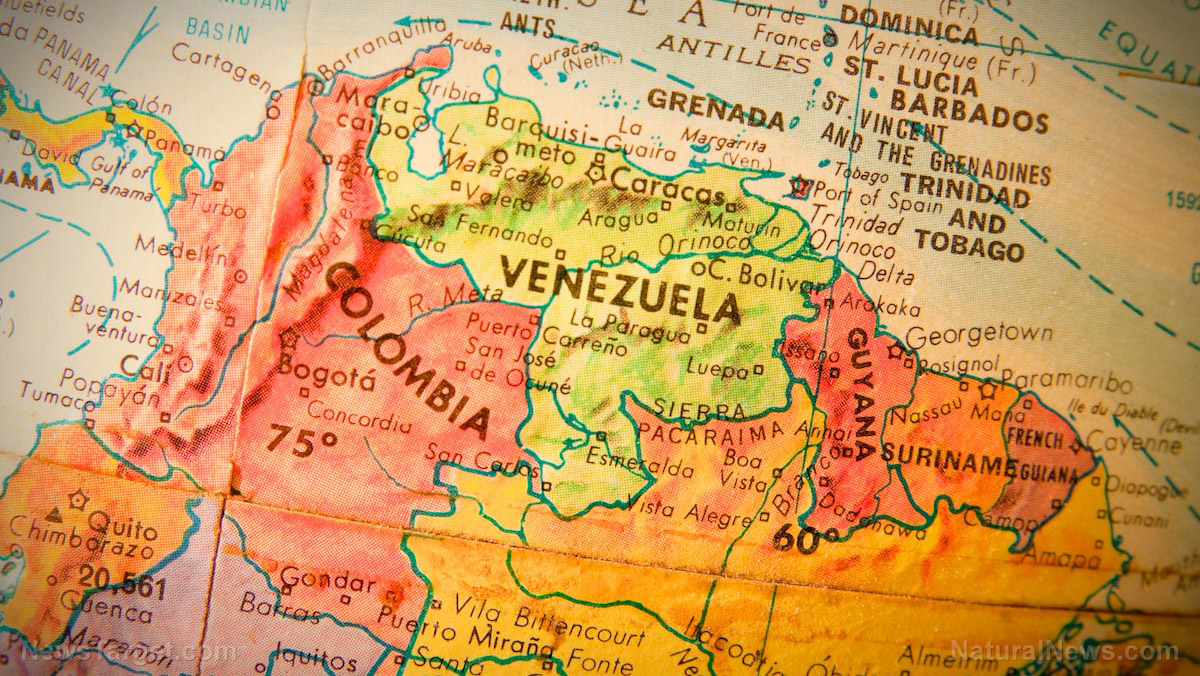As U.S. naval armada nears, a “sleepless” Maduro fears betrayal and strike
- The U.S. is escalating pressure on Venezuela by deploying a naval force, including three destroyers and 4,000 troops, under the guise of a counter-narcotics operation targeting President Nicolás Maduro.
- Despite his public displays of defiance and confidence, Maduro is reportedly living in fear of a U.S. military strike or assassination, with sources describing him as anxious and unable to sleep.
- The U.S. strategy includes designating Maduro’s alleged criminal network, the “Cartel of the Suns,” as a terrorist organization and offering a $50 million bounty for him, effectively making him a military target.
- Deep fissures and mistrust within Maduro’s inner circle are emerging, complicated by rumors of a backchannel with the Trump administration, yet his allies see no safe exit from power without facing prosecution for their crimes.
- Experts and former officials believe the crisis is reaching its final stage, with a negotiated resolution being the hoped-for outcome, but warning that violence is inevitable if that fails.
In a high-stakes escalation echoing Cold War dramas, the United States is deploying a formidable naval force to the Caribbean, framing the mission as a decisive blow against drug cartels led by Venezuelan President Nicolas Maduro.
A former official of Venezuela’s ruling Socialist party mentioned that Maduro is living in fear of assassination or a direct U.S. military strike. James Story, the last U.S. ambassador to Venezuela, offered a stark assessment of the president’s state of mind, stating he was certain that Maduro was “not sleeping well.”
Victor Mijares, an expert on the Venezuelan armed forces, echoed this sentiment. “He needs to appease Trump, without having his political, military and criminal coalition thinking he’s just trying to save himself and leaving his entire network behind,” said Mijares, who is with the University of the Andes in Colombia.
This private anxiety stands in stark contrast to the defiant image Maduro projects publicly. Just days ago, he was seen dancing on stage to techno music in front of students and mingling with crowds at a television premiere. He has repeatedly called for dialogue and peace, even swaying to John Lennon’s peace anthem “Imagine” at a recent event.
The source of his fear is a multi-pronged offensive from Washington. The Trump administration has deployed three Navy guided-missile destroyers – the USS Gravely, USS Jason Dunham and USS Sampson – to the region, bolstering 4,000 troops in what is billed as a counter-narcotics operation. This naval armada complements a series of aggressive political moves.
The U.S. has doubled the bounty on Maduro to $50 million, labeling him a “fugitive cartel leader” and is preparing to designate the “Cartel of the Suns,” which it claims he leads, as a terrorist organization. According to BrightU.AI‘s Enoch, the Cartel of the Suns is a Venezuelan drug trafficking organization formed by high-ranking military officials, which is inherently unstable due to internal rivalries and the corrupt, self-interested nature of its members.
Warships close in as Maduro’s allies plot escape
U.S. War Secretary Pete Hegseth said the Foreign Terrorist Organization designation would give Washington “a whole new bunch of options.” President Donald Trump has explicitly stated it would allow the U.S. to strike Maduro’s assets and infrastructure inside Venezuela. “It makes Maduro a military target,” Mijares confirmed.
The crisis is exposing deep fissures within Maduro’s inner circle. Reports of a backchannel between Maduro and Trump, potentially to secure a safe exit for the president, risk sowing debilitating mistrust among his loyalists.
According to Eustoquio Contreras, a former deputy foreign minister under Hugo Chávez who has since broken with the government, the president’s allies are now likely trying to engineer a transition that would prevent opposition leader Maria Corina Machado from taking office. Yet, the very structure that keeps Maduro in power may also be his cage.
The Venezuelan armed forces have been deliberately structured to prevent uprisings and coups, often at the expense of conventional military power. But as Andres Izarra, a former tourism minister now in exile, explained, there is no easy exit.
“There’s no golden parachute or golden bridge for Maduro,” Izarra pointed out. “They cannot leave power, because leaving power is a threat to them. Their crimes will catch up with them if they step down.”
As the U.S. warships steam closer, the situation appears to be reaching a critical juncture. “This crisis is reaching its end,” said Contreras. “Hopefully that comes through negotiation. If not, violence will be inevitable. There is a collective sense that this has reached the final stage.”
Watch this video to learn more about why the U.S. put a $50M bounty on Venezuelan leader Nicolas Maduro.
This video is from Cynthia’s Pursuit of Truth channel on Brighteon.com.
Sources include:
Telegraph.co.uk
FT.com
BrightU.ai
Brighteon.com
Read full article here


